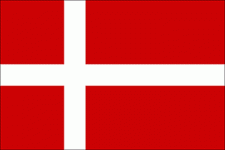
Danish research project Reorienting Integration published a 16-page report containing information and recommendations on the resettlement of Congolese refugees from Rwanda in Denmark.
400 Congolese refugees – mostly single mothers, their children and members of the LGBTQI+ community – are expected to arrive in Denmark over the next three years, travelling from UN-run refugee camps in Rwanda, where they have been living for many years. They will be distributed across 33 different municipalities. The research for this project has been carried out among the 235 that have arrived so far.
The report makes 10 key recommendations:
- Ensure adequate preparation and time allocation for resettlement support
- Housing/placement is crucial to the promotion of new arrivals’ integration
- Good interpreters ensure a better start for new arrivals
- Communication and consistency in effort is necessary for sustained support
- Ensure thorough planning of the integration process
- Increase focus on health and well-being
- Recognise volunteers as an important resource in the resettlement and integration process
- Be aware of the financial difficulties facing individuals and families
- Ensure support for children that does not remove them from the support of their parents
- Pay attention to different and specific food and dietary requirements
The project is a unique collaboration between academics from Aarhus University (Anthropology), the Danish Refugee Council (Centre for Vulnerable Refugees), the Danish Centre for Social Science Research (VIVE) and a number of municipalities. It will run from 2022 to 2026 and is financed by the Velux Foundation HUM Praxis programme.
Further information on the report can be requested from Mikkel Rytter, via mikkel.rytter@cas.au.dk.
Read the report. From UN refugee camp to municipality – 10 recommendations for receiving Congolese resettlement refugees


